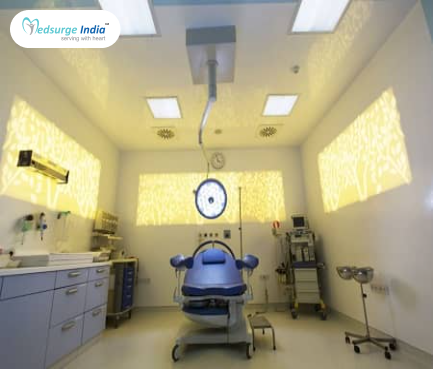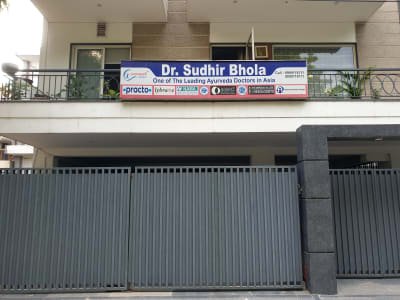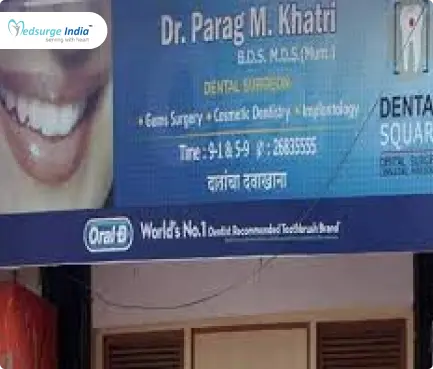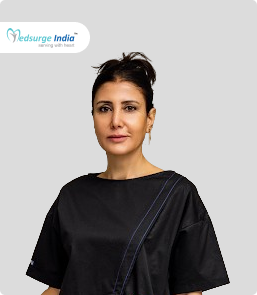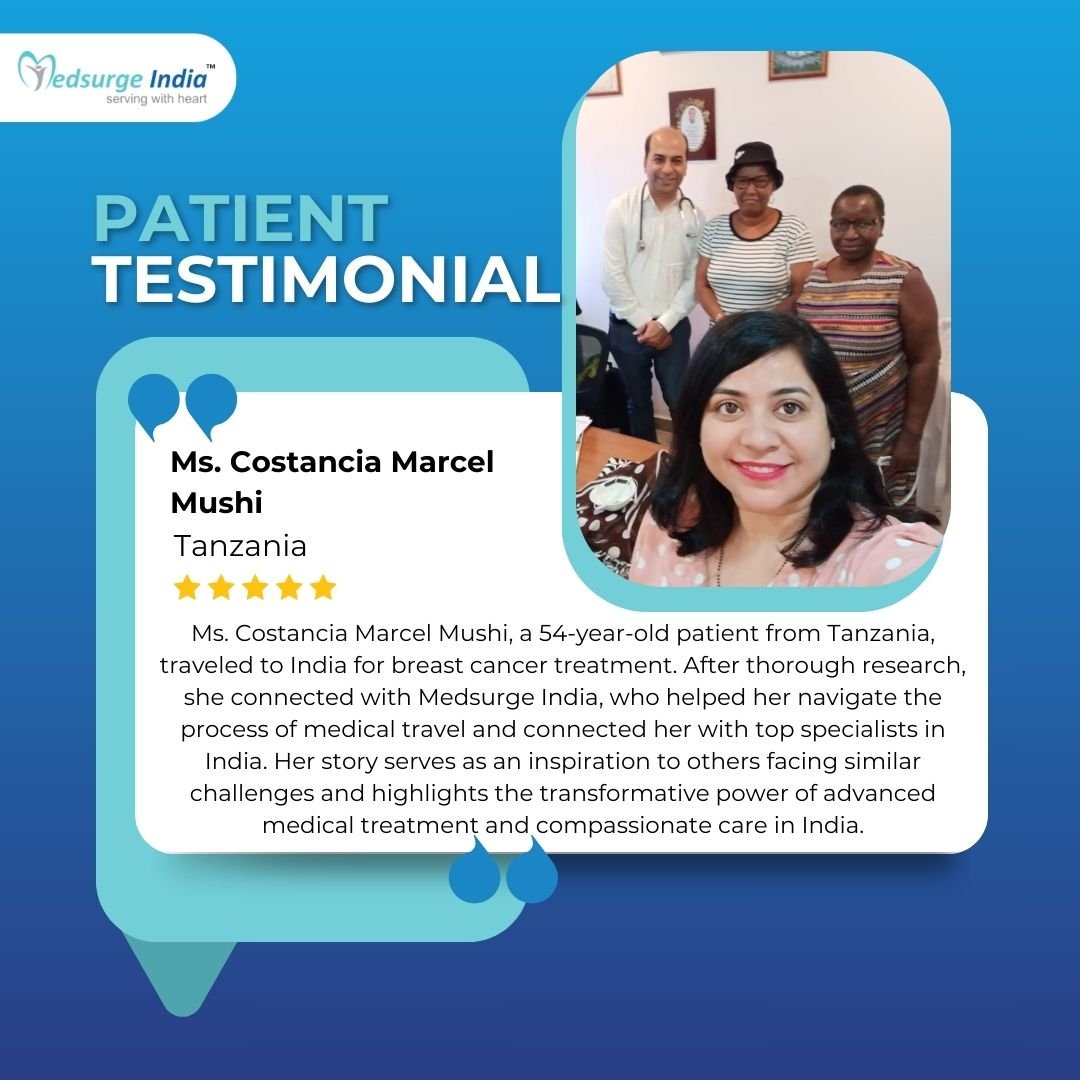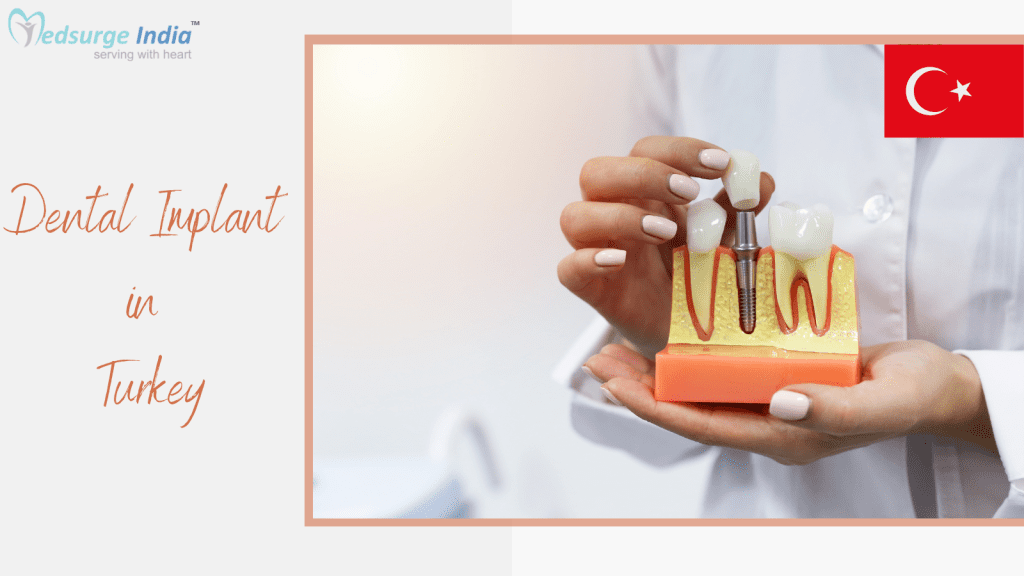
Dental implant surgeries rank among the most frequently performed dental procedures in modern practice. They can be undertaken for aesthetic purposes or to enhance the functionality of teeth. Turkey is an ideal destination for those seeking cost-effective yet high-quality dental implants. Also, dental implant cost in Turkey are less compared with its neighboring continents like Europe and Asia.
Dental Implants are used to replace the tooth roots with metals post which resemble that of a screw, where the damaged or missing teeth are replaced with the help of prosthetic teeth which resemble a genuine tooth both in appearance and function.
Here we will delve into the cost of dental implant in Turkey and why many patients come to Turkey to have this procedure.
Dental Implant Cost in Turkey
Dental Implant Cost in Turkey starts from 43,000 Turkish lira (1,500 USD). Compared to other countries, Dental Implant in Turkey are relatively low and offer exceptional value and represent a wise choice for many.
Also, individuals from all over the world travel to Turkey, a prominent destination for medical tourism. The quality of services in Turkey is outstanding, and due to the favorable exchange rate between the lira and the dollar, you can access a wide range of services at a relatively low cost.
Types of Dental Implants Procedure and The Cost Comparison with Other Countries
| Types of Dental Implant procedure | Turkey | U.S | U.K | Australia |
| Full Mouth Implant | 5000 | 20000 | 18000 | 16000 |
| Multiple Tooth Implant | 2500 | 10000 | 9000 | 8000 |
| Single Tooth Implant | 1800 | 75000 | 6000 | 4900 |
Please keep in mind that the price mentioned above for dental implant cost in Turkey is only for the procedure, there will be other additional factors that will play on the final cost.
Factors That Can Affect the Cost of Dental Implant in Turkey
Some factors can affect dental implant cost in Turkey, here we will list these factors:
- The number of implants one may need as the more the implant more the cost.
- The type of implant. Some may cost more depending on the implant brand.
- The quality of the implant material better the quality higher the cost.
- Additional procedures one may need after the implant.
- The expertise of the doctor.
- The reputation of the clinic one chooses.
While looking for an affordable price one should keep in mind about the above facytors mentioned above while looking for hospitals and clinis for dental implant in Turkey.
What is a Dental Implant and how does it look?
A dental implant is a surgical prosthetic device designed to be inserted into the jawbone. These implants, typically crafted from titanium, function as artificial roots that replace the natural roots of missing teeth. They provide a stable foundation for securing prosthetic teeth.
The dental implant, often referred to as a dental implant system, comprises two main components:
- The dental implant body.
- The dental implant abutment, which may or may not include an abutment fixation screw.
The dental implant body features a screw-like design and is surgically inserted into the jawbone, serving as a replacement for the tooth root.
The dental implant abutment acts as a connector to the implant body, extending through the gum into the oral cavity to provide support for the prosthetic tooth that is affixed to it.
Functioning as the intermediary between the implant body and the prosthetic tooth, the dental abutment plays a crucial role. The abutment fixation screw, while part of the dental implant system, is not always utilized in every dental implant. This screw secures the dental abutment and reinforces the attachment of the prosthetic tooth.
What are the Different Types of Dental Implants and Dental Implant Procedures?
Treatment for dental implant in Turkey uses three primary categories of dental implants, which are as follows:
Endosteal Dental Implant
The endosteal dental implant is the most prevalent form of dental implant. This type involves the surgical insertion of screw, blade, or cylinder-shaped implants directly into the jawbone. It allows for the placement of multiple prosthetic teeth and is particularly suitable for individuals who already have dental bridges or dentures.
If you are considering dental implants in Turkey, your dentist will assess the health of your gums to determine your eligibility for the procedure. Dental implants are generally not recommended for individuals with diabetes or those suffering from jaw-related diseases.
Subperiosteal Dental Implants
Subperiosteal dental implants are less frequently used compared to endosteal implants. These implants are positioned on or above the jawbone, with a metal framework that extends through the gum to secure the implant in place. This option is ideal for patients who are unable to wear traditional dentures and for those who lack sufficient bone height for an endosteal implant.
Zygomatic Dental Implants
Zygomatic dental implants are the least common type and involve a more intricate procedure. They are utilized when there is an inadequate jawbone for endosteal implants. In this case, the implant is anchored in the zygomatic bone, or cheekbone, rather than the jawbone.
Different types of Dental implant Procedures in Turkey
Various techniques are utilized for the installation of dental implants. These techniques include:
Single Tooth Dental Implant
This method involves placing a single dental implant to replace one lost or damaged tooth. When considering dental implants in Turkey, your dentist will evaluate whether you require one or multiple implants.
Multiple Tooth Dental Implant
This approach entails the placement of several dental implants to replace multiple missing or damaged teeth.
Full Mouth Dental Implant
This procedure is designed for patients who have lost all their teeth. In this case, dental implants are used to replace every tooth in the mouth.
How is the Dental Implant Procedure Done?
While doing dental implant in Turkey the first phase of the dental implant procedure involves creating a personalized treatment plan. This plan is crafted by a team of experts skilled in restorative dentistry and oral surgery, ensuring that your specific needs are met. The treatment is managed by this team, which selects the most suitable implant option for you.
Next, a small titanium post, known as the tooth root implant, is inserted into the socket of the lost tooth. As the jawbone heals and integrates around the metal post, it becomes securely anchored in place. This healing period typically lasts between six to twelve weeks.
Once the implant has firmly integrated with the jawbone, a small connector called an abutment is placed on top to support the new tooth. Your dentist will take impressions of your teeth and create a model of your bite to design the new tooth or teeth, which will reflect the type and arrangement of your existing teeth. The replacement tooth, referred to as a crown, is then affixed to the abutment.
In some cases, patients may opt for attachments on the implant that can hold and stabilize a removable denture instead of individual crowns. Furthermore, your dentist will ensure that the replacement teeth match the color of your natural teeth. The final result is that the replacement teeth closely resemble your original teeth in appearance, feel, and function, as the implant is securely embedded in the jawbone.
What is the Advantage of Doing Dental Implant?
- Enhance your ability to speak and enjoy food with ease.
- This offers a durable solution for replacing lost teeth.
- In contrast to dentures, dental implants carry minimal risk of infection.
- Most significantly, they provide a lifelike appearance.
- They will not adversely affect the natural teeth adjacent to them.
- Dental implants do not interfere with your sense of taste.
- They are secure and comfortable, operating silently without any noise.
How to Care for New Dental Implants?
Here are some effective ways to maintain your new dental implant:
Daily Oral Hygiene:
It is essential to brush your dental implants twice a day for two minutes each time. Additionally, flossing around the implants helps eliminate any food particles that may accumulate. Consistent brushing and flossing are crucial in preventing plaque and bacteria buildup along the gum line, thereby reducing the risk of gum infections and diseases.
Utilize Appropriate Cleaning Tools:
The tools you choose for cleaning your implant are vital. A soft-bristled toothbrush is recommended for brushing, as it is gentle on the gums. Ensure that your toothbrush can effectively reach the back of your mouth. If you are undergoing a dental implant procedure in Turkey, your dentist can provide guidance on suitable cleaning tools.
Replace Your Toothbrush Regularly:
It is advisable to change your toothbrush every three months. Over time, a worn toothbrush may not effectively remove plaque and debris from your implants.
Avoid Harmful Habits and Foods:
Certain habits and foods can adversely affect the longevity of your implants. These include nail biting, consuming hard foods, and chewing on ice. It is important to eliminate these habits to protect your implant.
Maintain Hydration:
Drinking water is beneficial as it stimulates saliva production. Saliva plays a crucial role in washing away excess food and bacteria from your implants and helps neutralize acids produced by oral bacteria.
Schedule Regular Dental Check-ups:
It is important to visit your dentist at least twice a year for check-ups and cleanings. Depending on your specific situation, your dentist may recommend more frequent visits if any issues or complications arise.
Why Turkey Is a Top Destination for Dental Implants?
Turkey, often described as a Eurasian country, is strategically positioned at the crossroads of Asia and Europe. Its culture is a unique blend of Eastern and Western influences, deeply rooted in its historical legacy as the successor to the Ottoman Empire. Recognized as a regional power and a developed nation, Turkey shares this status with countries like the United States and those in Western Europe. Additionally, it ranks among the top ten global destinations for medical tourism.
Individuals from various parts of the globe are increasingly choosing Turkey for medical tourism due to several compelling factors, including:
– Accredited hospitals equipped with state-of-the-art technology
– High-quality healthcare services
– Competitive Pricing
– Exceptional service and cultural experiences
– Strategic geographical location
– A wealth of traditional, historical, natural, and tourist attractions
Three key advantages of seeking medical treatment in Turkey are affordability, a high standard of care, and prompt access to quality services. One of Turkey’s primary strengths is the significant cost savings it provides, with many medical procedures costing 30% – 50% less than in the European Union. Furthermore, Turkey’s location is advantageous, being just a two to three-hour flight from major cities in the Middle East and Europe. More than 70 countries also enjoy visa-free access to Turkey. These are some of the reasons why many people come for dental implant cost in Turkey.
How do I Select a Hospital/ Clinic in Turkey for Dental Implants?
The leading hospitals in Turkey recognized for patient care are distinguished by their welcoming atmosphere and dedication to addressing individual needs. These facilities employ some of the country’s finest prosthodontists and Oral and Maxillofacial Surgeons, who are highly skilled in their specialties. For international patients, selecting an appropriate hospital for treatment can be a challenging task. This significant decision requires careful consideration of various factors, including:
- Accreditations and certifications for excellence
- Location of the hospital and the transit hub
- The medical and surgical team
- Modern diagnostic and treatment tools
Get Free Cost Estimation
Procedure
What Is a Dental Implant Procedure
- The initial step in the dental implant process is the development of a custom treatment plan. The strategy is developed by a team of specialists with training in restorative dentistry and oral surgery who are competent at meeting your demands. Your treatment is handled by a team based on the optimal implant choice for you.
- The lost tooth’s former bone socket is subsequently used to introduce the tooth root implant, a small titanium post. When the jawbone heals and grows around the metal post, it securely fixes it in the jaw. The healing process takes six to twelve weeks.
- A small connecting post, known as an abutment, is placed on the implant once it has solidified in the jawbone in order to safely retain the new tooth. Your dentist creates impressions of your teeth and a model of your bite in order to fabricate the new tooth or teeth (which captures all of your teeth, their type, and arrangement). In this model, the new tooth or teeth are based. The replacement tooth, called a crown, is subsequently attached to the abutment.
- Some patients may have attachments inserted on the implant that hold and support a removable denture in place of one or more separate crowns.
- Additionally, your dentist will match the replacement teeth to the color of your existing teeth. The replacement teeth are exactly like your own natural teeth in terms of look, feel, and functioning since the implant is lodged into the jawbone.
Helpful – All You Need to Know About Tooth Dental Contouring
Factors That Affect The Cost of Dental Implant in Turkey
Dental Implant Cost in Turkey can depend on the patient depends on many factors, they are:
- The hospital, the patient chooses.
- Fee for the team of doctors.
- Standard tests and diagnostic procedures.
- Type of surgery performed
- The price of the needed post-procedure care
- Dental Implant in Turkey prices can depend on the type of hospital and rooms you stay.
For foreign patients traveling to Turkey, Medsurge India provides the finest Dental Implant cost in Turkey at a reasonable cost, all while being supervised by top medical professionals.
How do I Select a Hospital in Turkey for Dental Implants?
The best hospitals in Turkey that treat patients are well-known for their friendliness and attention to their needs. Some of Turkey’s top prosthodontists or Oral and Maxillofacial Surgeons who are experts in their fields work at these facilities. Choosing a good hospital for treatment can be difficult for an international patient. It is a major decision that must be made while keeping several factors in mind, including:
- Accreditations and certifications for excellence
- Location of the hospital and the transit hub
- The medical and surgical team
- Modern diagnostic and treatment tools
- overseas medical help
Why Do Individuals Prefer to Have a Dental Implant in Turkey
Certainly, it is a popular destination for those seeking the best dental implants in Turkey and medical procedures. Dental Implant cost in Turkey is typically a fraction of the cost of a comparable procedure and consideration in the United States and other developed countries. In any case, the dental Implant cost in Turkey may vary depending on the type of medical procedure, the use of inserts, and the patient’s other conditions. As a result, the final charges for dental Implant in Turkey given to patients are entirely based on their clinical reports, as well as the patient’s current condition, type of medical procedure, type of room, the specialist’s skill, and hospital brand.
The best hospitals for Dental Implant in Turkey provide comprehensive appropriate treatment, including comprehensive pre-operative evaluations, minimally invasive surgical options, and post-operative rehabilitation programs. Patients can expect personalized treatment, individualized attention, and compassionate care at these medical facilities.
How Can Medsurge India Help?
Medsurge India is a prestigious support system for patients looking for doctors, hospitals, and specialized treatments. We’ll find the most suitable medical options for you. Regarding your medical issues, our team will give you a list of certified, reputable, and trusted doctors and hospitals. Additionally, we offer a treatment strategy that fits your budget. Apart, we assist patients with obtaining travel authorizations, medical visas, and a multitude of other things.
The Most Important Frequently Asked Questions
Q: What Are the 3 Types of Dental Implants?
A: Endosteal, subperiosteal, and zygomatic are the three most common types of dental implants. Endosteal is the most common and safest, followed by subperiosteal, and finally zygomatic, which is the most complex. It is seldom used.
Q: What Is the Pain Level of a Dental Implant?
A: A simple dental implant has a pain level of two to three in the first 24 to 48 hours for a patient with good bones who does not require a lot of soft tissue surgery, which means over-the-counter medication like Tylenol or Advil will take care of any discomfort they are feeling.
Q: How Many Teeth Can Be Placed on a Single Implant?
A: An implant is rarely used to replace multiple teeth on its own, but it can be used in conjunction with another implant to replace up to six teeth. That means that an implant can only support three artificial teeth on its own.
Q: Do Implants Have a Better Appearance Than Dentures?
A: You never have to worry about your dental implants falling out while speaking or laughing in public. Furthermore, they are more comfortable and appear more natural than dentures. Dental implants are your best option if you want to feel as if you never lost a tooth in the first place!
Q: What If You Have All of Your Teeth Extracted?
A: Dentures are typically used to help replace teeth that were extracted during a full mouth extraction. Following the procedure, your dentist will usually place immediate dentures to put you on the road to a beautiful smile.
Top Hospitals for Dental Implant In Turkey
Top Doctors for Dental Treatment
Dr. Ammar
Professor
Experience: 29 years of experience
Kariso International Medical Aesthetic Clinic, Istanbul
Istanbul, Turkey
Dr. Pınar Türkoğlu
Consultant
Experience: 9 years of experience
American Hospital, Istanbul
Istanbul, Turkey
Dr. Oguz Bilgic
Consultant
Experience: 10 years of experience
Avrupadis Atasehir Oral and Dental Health Polyclinic, Atasehir
Istanbul, Turkey
Dr. Tolga Ceyhanli
Consultant
Experience: 19+ Years of Experience
Avrupadis Atasehir Oral and Dental Health Polyclinic
Istanbul, Turkey
Dr. Gulsah Unal Kundakcioglu
Consultant
Experience: 11+ Years of Experience
Istanbul Dental and Plastic & Esthetic Group (IPEG)
Istanbul, Turkey
Dr. Nafi Honor
Consultant
Experience: 11 years of experience
Avrupadis Atasehir Oral and Dental Health Polyclinic, Atasehir
Istanbul, Turkey
Dr. Ali Can Yeni
Consultant
Experience: 11 Years of Experience
Idea Dental Clinic, Istanbul
Istanbul, Turkey
Dr. Ozgun Senyurt
Consultant
Experience: 20+ Years of Experience
Avrupadis Atasehir Oral and Dental Health Polyclinic
Istanbul, Turkey
Dr. Gamze Kavuncu
Consultant
Experience: 10 years of experience
Idea Dental Clinic, Istanbul
Istanbul, Turkey
Dr. Mete Yurtseven
Consultant
Experience: 35+ Years of Experience
Avrupadis Atasehir Oral and Dental Health Polyclinic, Atasehir
Istanbul, Turkey
Dr. İsmail Kurtdere
Consultant
Experience: 4 years of experience
American Hospital, Istanbul
Istanbul, Turkey
Dr. Halil Pamukcu
Consultant
Experience: 25 years of experience
Medicana International Istanbul
Istanbul, Turkey
DT. YUCEL DURMUSOGLU
Senior Consultant
Experience: 20 years of experience
Medical Park Group, Istanbul
Istanbul, Turkey
Dr. Abdulsamet Kundakcioglu
Consultant
Experience: 32 years of experience
Istanbul Dental and Plastic & Esthetic Group (IPEG), Istanbul
Istanbul, Turkey
Dr. Can Metiner
Consultant
Experience: 9 years of experience
Idea Dental Clinic, Istanbul
Istanbul, Turkey
















